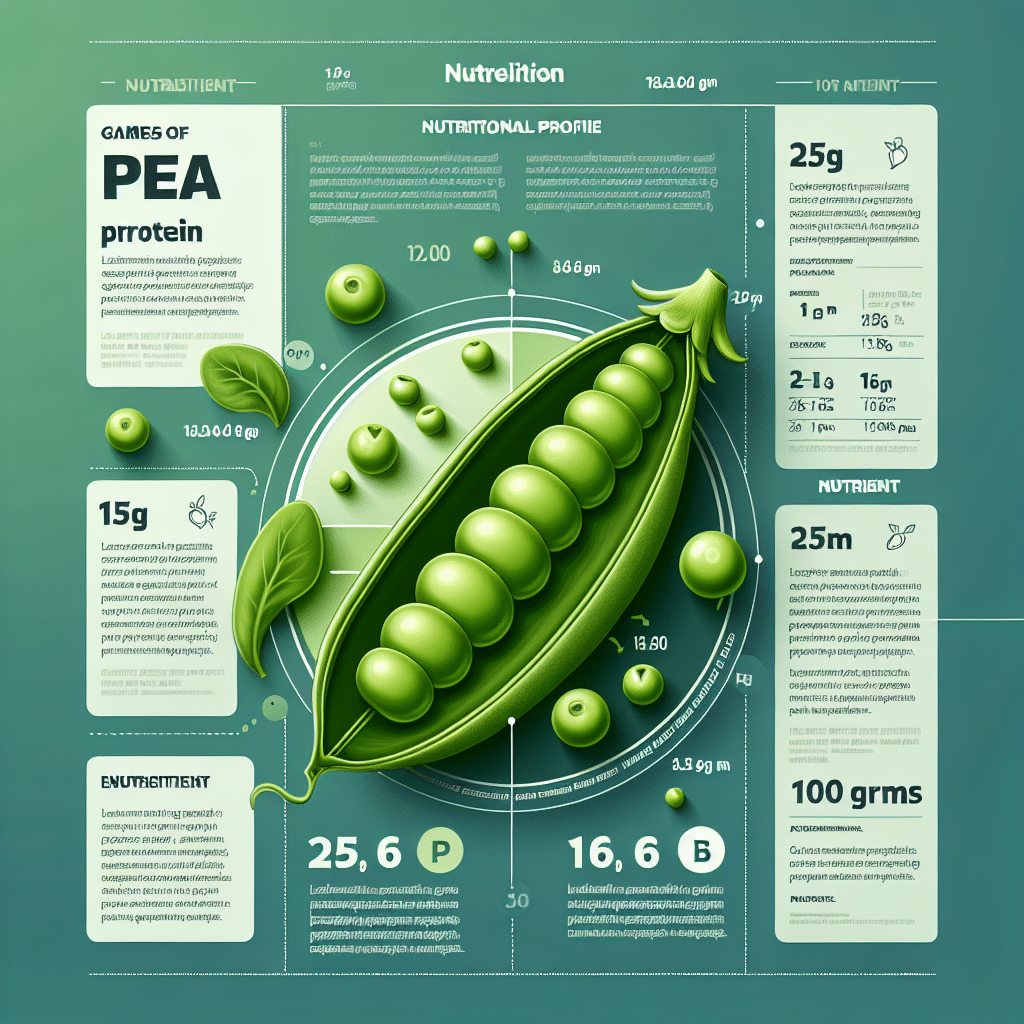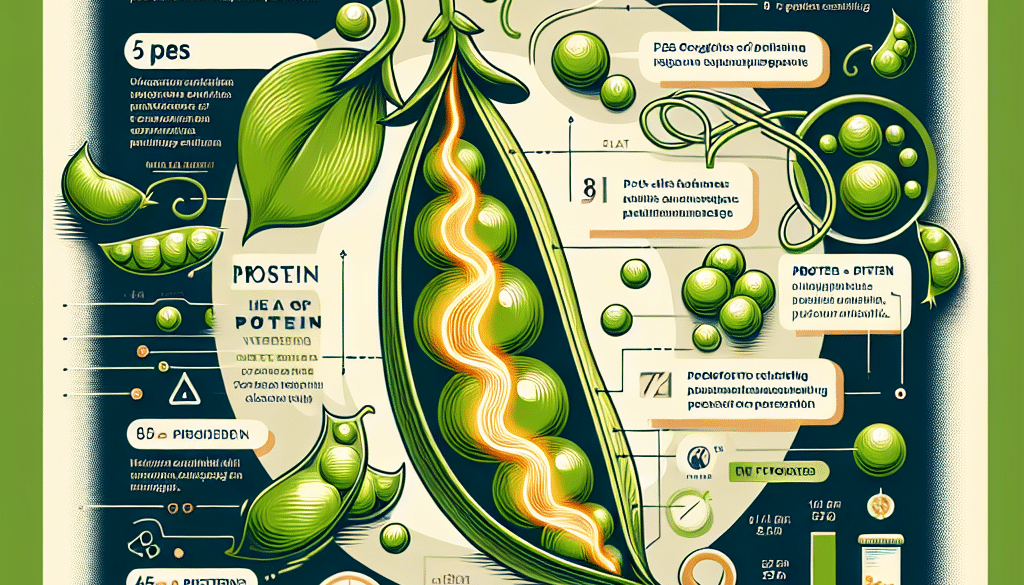Protein Content of Pea: Nutritional Profile
-
Table of Contents
Protein Content of Pea: Nutritional Profile

Peas are a versatile and nutritious legume that has been consumed for centuries. They are not only a staple in many cuisines but also offer a wide range of health benefits. One of the key nutritional components of peas is their protein content. In this article, we will explore the protein content of peas and their nutritional profile, highlighting their importance in a balanced diet.
The Importance of Protein in the Diet
Protein is an essential macronutrient that plays a crucial role in the growth, repair, and maintenance of body tissues. It is made up of amino acids, which are the building blocks of proteins. There are 20 different amino acids, nine of which are essential, meaning they cannot be produced by the body and must be obtained through the diet.
Protein is necessary for various bodily functions, including:
- Building and repairing tissues, such as muscles, bones, and organs
- Producing enzymes, hormones, and antibodies
- Transporting nutrients and oxygen throughout the body
- Supporting a healthy immune system
It is important to consume an adequate amount of protein daily to meet the body’s needs and maintain optimal health.
The Protein Content of Peas
Peas are a rich source of plant-based protein, making them an excellent choice for vegetarians, vegans, and individuals looking to reduce their meat consumption. The protein content of peas can vary depending on the variety and preparation method.
On average, one cup (160 grams) of cooked peas contains approximately 8 grams of protein. This is a significant amount considering that the recommended daily intake of protein for adults is around 46-56 grams for women and 56-70 grams for men.
Pea protein is also highly digestible, with a digestibility score of around 90-95%. This means that the body can efficiently absorb and utilize the protein from peas.
The Nutritional Profile of Peas
In addition to their protein content, peas are packed with essential vitamins, minerals, and dietary fiber. They are a good source of:
- Vitamin K: Important for blood clotting and bone health
- Vitamin C: An antioxidant that supports the immune system and collagen production
- Vitamin A: Essential for vision, immune function, and cell growth
- Folate: Necessary for DNA synthesis and cell division
- Potassium: Helps maintain healthy blood pressure and fluid balance
- Manganese: Supports bone health and metabolism
- Dietary Fiber: Promotes digestive health and helps regulate blood sugar levels
Peas are also low in fat and cholesterol, making them a heart-healthy food choice.
Pea Protein and Its Benefits
Pea protein has gained popularity in recent years as a plant-based alternative to animal-based protein powders. It is derived from yellow peas and is a complete protein, meaning it contains all nine essential amino acids.
Some of the benefits of pea protein include:
- High in Branched-Chain Amino Acids (BCAAs): Pea protein is rich in BCAAs, which are essential for muscle growth and repair.
- Hypoallergenic: Pea protein is free from common allergens like gluten, dairy, and soy, making it suitable for individuals with food sensitivities or allergies.
- Sustainable: Peas are a sustainable crop that requires less water and fertilizer compared to animal-based protein sources.
- Weight Management: Pea protein is low in calories and carbohydrates, making it a suitable option for individuals looking to manage their weight.
Pea protein can be easily incorporated into various recipes, including smoothies, baked goods, and protein bars, providing a convenient and nutritious way to increase protein intake.
Conclusion
Peas are not only a delicious and versatile legume but also a nutritional powerhouse. They are an excellent source of plant-based protein, offering a wide range of health benefits. Whether consumed in their whole form or as pea protein powder, peas can be a valuable addition to a balanced diet.
By incorporating peas and pea protein into your meals and snacks, you can boost your protein intake, support muscle growth and repair, and enjoy the numerous vitamins, minerals, and dietary fiber they provide.
About ETprotein
ETprotein, a reputable protein Chinese factory manufacturer and supplier, is renowned for producing, stocking, exporting, and delivering the highest quality organic bulk vegan protein and plant proteins. They include Organic rice protein, clear rice protein, pea protein, clear pea protein, pumpkin seed protein, sunflower seed protein, mung bean protein, etc. Our offerings, characterized by a neutral taste, non-GMO, allergen-free attributes, cater to a diverse range of industries. We serve nutraceutical, pharmaceutical, cosmeceutical, veterinary, as well as food and beverage finished product distributors, traders, and manufacturers across Europe, USA, Canada, Australia, Thailand, Japan, Korea, Brazil, and Chile, among others.
Our specialization includes exporting and delivering tailor-made protein powder and finished nutritional supplements. Our extensive product range covers sectors like Food and Beverage, Sports Nutrition, Weight Management, Dietary Supplements, Health and Wellness Products, and Infant Formula, ensuring comprehensive solutions to meet all your protein needs.
As a trusted company by leading global food and beverage brands and Fortune 500 companies, ETprotein reinforces China’s reputation in the global arena. For more information or to sample our products, please contact us and email sales(at)ETprotein.com today.












